Filter by
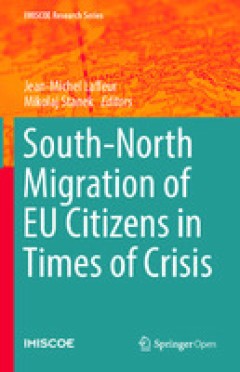
Outh-north migration of eu citizens in times of crisis
The global fi nancial and economic crisis has been hitting the European Union severely since 2008. Although the economic crisis began in advanced economies and then spread all over the globe, its impact and implications are far from being equally distributed geographically. This is particularly visible within the European Union. While some countries, mainly in the North,…
- Edition
- -
- ISBN/ISSN
- 9783319397634
- Collation
- 224 p.
- Series Title
- -
- Call Number
- 304.8. MIKO o

Contentious minds : how talk and ties sustain activism
Why does the mind matter for joint action? Contentious Minds is a comparative study of how cognitive and relational processes allow activists to sustain their commitment. With survey data and narratives of activists engaged in three commitment communities, the minds of activists involved in contentious politics are compared with those devoted to institutional and volunteering action. The bookâ€â€¦
- Edition
- -
- ISBN/ISSN
- 9780190078010
- Collation
- xii, 366 p. : ill.
- Series Title
- -
- Call Number
- 303.484 PAS c

Houses built on sand : violence, sectarianism and revolution in the Middle East
The events of the Arab Uprisings posed an existential challenge to sovereign power across the Middle East. Whilst popular movements resulted in the toppling of authoritarian rule in Tunisia, Egypt and Yemen, other regimes were able to withstand these pressures. This book questions why some regimes fell whilst others were able to survive. Drawing on the work of political theorists such as Agambe…
- Edition
- -
- ISBN/ISSN
- 9781526126474
- Collation
- x, 266 p. : ill.
- Series Title
- -
- Call Number
- 303.48330956 MAB h

Toward a pragmatist sociology : John Dewey and the legacy of C. Wright Mills
In Toward a Pragmatist Sociology, Robert Dunn explores the relationship between the ideas and principles of philosopher and educator John Dewey and sociologist C. Wright Mills to provide a philosophical and theoretical foundation for the development of a critical and public sociology. Dunn recovers an intellectual and conceptual framework for transforming sociology into a more substantive, comp…
- Edition
- -
- ISBN/ISSN
- 9781439914618
- Collation
- ix, 203 p. : ill.
- Series Title
- -
- Call Number
- 301.01 DUN t
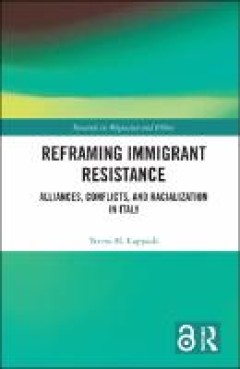
Reframing immigrant resistance : alliances, conflicts, and racialization in I…
This book focuses on the political participation and grassroots mobilization of immigrants and racialized communities in the European context. Based on extensive data collected in Italy, it explores the role that alliances among pro-immigrant groups play in shaping political participation, asking why and how immigrant activists mobilize in hostile environments, why and how they create alliances…
- Edition
- -
- ISBN/ISSN
- 9781351267403
- Collation
- xv, 322p. : ill.
- Series Title
- -
- Call Number
- 305.9069120945 CAP r
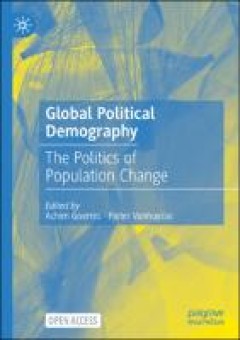
Global political demography : the politics of population change
This open access book draws the big picture of how population change interplays with politics across the world from 1990 to 2040. Leading social scientists from a wide range of disciplines discuss, for the first time, all major political and policy aspects of population change as they play out differently in each major world region: North and South America; Sub-Saharan Africa and the MENA regio…
- Edition
- -
- ISBN/ISSN
- 9783030730659
- Collation
- x, 459. : ill.
- Series Title
- -
- Call Number
- 304.6 GOE g
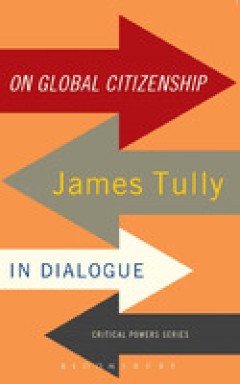
On global citizenship : james tully in dialogue
On Global Citizenship develops James Tully's distinctive and influential approach to political philosophy, first outlined in his 2008 two-volume work Public Philosophy in a New Key, and applies it to the field of citizenship. The second part of the book contains responses from influential interlocutors including Bonnie Honig and Marc Stears, David Owen and Adam Dunn, Aletta Norval, Antony Laden…
- Edition
- -
- ISBN/ISSN
- 9781849665162
- Collation
- xii, 369 p. ; ill
- Series Title
- -
- Call Number
- 323.6 TUL o
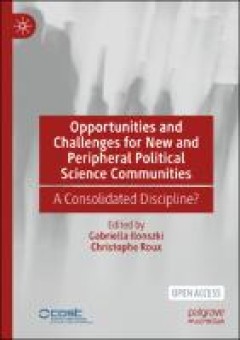
Opportunities and challenges for new and peripheral political science communi…
This open access book offers an updated examination of the institutionalisation of political science in sixteen latecomer or peripheral countries in Europe. Its main theme is how political science as a science of democracy is influenced and how it responds to the challenges of the new millennium. The chapters, built upon a common theoretical framework of institutionalisation, are evidence-based…
- Edition
- -
- ISBN/ISSN
- 9783030790547
- Collation
- xiv, 288 p. ; ill
- Series Title
- -
- Call Number
- 320 ILO o
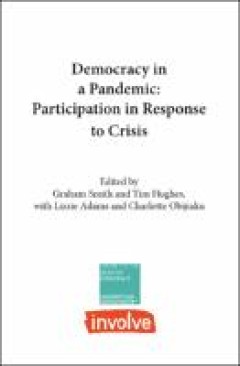
Democracy in a pandemic: participation in response to crisis
Covid-19 has highlighted limitations in our democratic politics – but also lessons for how to deepen our democracy and more effectively respond to future crises. In the face of an emergency, the working assumption all too often is that only a centralised, top-down response is possible. This book exposes the weakness of this assumption, making the case for deeper participation and deliberation…
- Edition
- -
- ISBN/ISSN
- 9781914386183
- Collation
- vii, 200 p. ; ill
- Series Title
- -
- Call Number
- 323.042 SMI d

The advisory roles of political scientists in Europe
This open access book centres on the advisory roles of political scientists in Europe. Based on a cross-national survey, the book offers a comparative analysis of the viewpoints and activities of university-based political scientists on external engagement. Political scientists in Europe appear more extrovert as academics than sometimes thought. In their professional functioning they engage in …
- Edition
- -
- ISBN/ISSN
- 9783030860059
- Collation
- xxx, 436 p. ill
- Series Title
- -
- Call Number
- 320 BRA t
 Computer Science, Information & General Works
Computer Science, Information & General Works  Philosophy & Psychology
Philosophy & Psychology  Religion
Religion  Social Sciences
Social Sciences  Language
Language  Pure Science
Pure Science  Applied Sciences
Applied Sciences  Art & Recreation
Art & Recreation  Literature
Literature  History & Geography
History & Geography